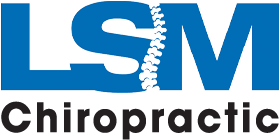Chiropractic Care for Desk Job Professionals

In an era dominated by desk jobs and sedentary lifestyles, the prevalence of musculoskeletal issues among professionals is on the rise. Neck pain, upper back tension, and shoulder stiffness have become all too familiar for individuals spending prolonged hours hunched over computers. Amidst this epidemic of discomfort, chiropractic care emerges as an essential solution tailored to the unique needs of desk job professionals. This essay explores the necessity of chiropractic care in addressing the physical challenges faced by individuals in sedentary occupations.
Desk Jobs and Your Spine
Desk job professionals are particularly vulnerable to musculoskeletal problems due to the repetitive and static nature of their work. Prolonged sitting and poor posture can lead to misalignments in the spine, causing discomfort and reducing overall well-being. Chiropractic care specializes in identifying and correcting these misalignments through gentle adjustments, restoring proper spinal alignment and relieving associated pain.
Chiropractic Care Is A Natural Solution for Spinal Health
Chiropractic care offers a holistic approach to wellness, focusing not only on symptom relief but also on addressing underlying causes. Unlike temporary fixes such as pain medication, chiropractic treatments target the root of the problem, promoting long-term healing and prevention. By incorporating spinal adjustments, therapeutic exercises, and ergonomic education, chiropractors empower desk job professionals to take control of their health and minimize the recurrence of musculoskeletal issues.
How Chiropractic Care Can Help Desk Job Professionals
Chiropractic care emphasizes the importance of proactive maintenance and self-care strategies. Through personalized treatment plans and lifestyle recommendations, chiropractors educate individuals on proper ergonomics, posture awareness, and movement techniques. By implementing these practices into their daily routines, desk job professionals can mitigate the negative effects of prolonged sitting and prevent future injuries, thus improving their overall quality of life.
Furthermore, chiropractic care complements other wellness modalities and enhances overall health and vitality. By optimizing spinal function and nervous system communication, chiropractic adjustments facilitate better circulation, immune function, and stress management. This integrated approach to health not only alleviates physical discomfort but also promotes mental clarity, productivity, and resilience in the face of workplace stressors.
Research overwhelmingly support the benefits of chiropractic care, particularly for individuals with desk jobs. Numerous studies have demonstrated the effectiveness of chiropractic interventions in reducing pain, improving function, and enhancing overall well-being. Moreover, chiropractors undergo extensive training and licensure, ensuring the highest standards of care and safety for their patients.
The Importance of Spine Health If You Work A Desk Job
In conclusion, chiropractic care is not just a luxury but a necessity for professionals with desk jobs. In a world where sedentary lifestyles and musculoskeletal issues are increasingly prevalent, chiropractic interventions offer a proactive and holistic solution to address the unique challenges faced by desk job professionals. By promoting spinal health, ergonomic awareness, and self-care strategies, chiropractors empower individuals to thrive in their careers and lead fulfilling, pain-free lives. As the demands of the modern workplace continue to evolve, the importance of chiropractic care in supporting the well-being of desk job professionals cannot be overstated.
The information, including but not limited to, text, graphics, images and other material contained on this page are for informational purposes only. The purpose of this post is to promote broad consumer understanding and knowledge of various health topics, including but not limited to the benefits of chiropractic care, exercise and nutrition. It is not intended to provide or be a substitute for professional medical advice, diagnosis or treatment. Always seek the advice of your chiropractor, physician or other qualified health care provider with any questions you may have regarding a medical condition or treatment and before undertaking a new health care regimen, and never disregard professional medical advice or delay in seeking it because of something you have read on this page.




